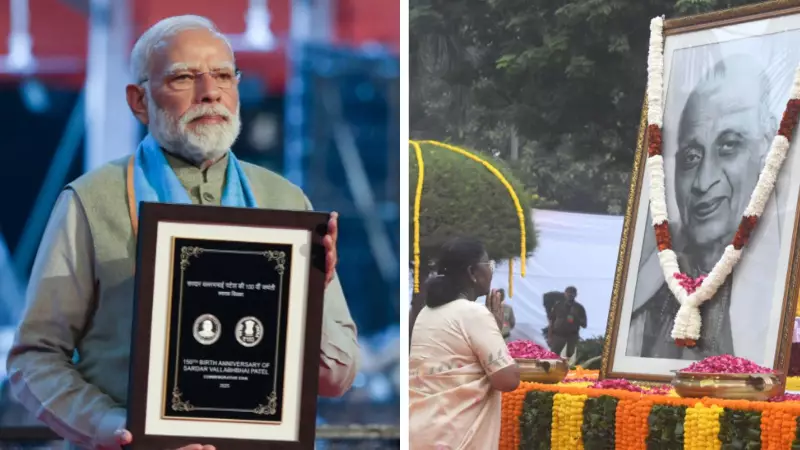
Prime Minister Narendra Modi led the nation in commemorating Sardar Vallabhbhai Patel's 148th birth anniversary on Wednesday, celebrating the occasion as National Unity Day with a visit to the iconic Statue of Unity in Kevadia, Gujarat.
Political Significance of Patel's Legacy
The ceremony took on added political dimensions as the Congress party simultaneously emphasized Patel's enduring connection to their political heritage. In a strategic move, the opposition party released a video underscoring that the "Iron Man of India" fundamentally disagreed with the ideological framework of the ruling BJP's parent organization, the Rashtriya Swayamsevak Sangh (RSS).
Modi's Homage to Unity Architect
Addressing a gathered crowd, PM Modi characterized Sardar Patel as the visionary architect who unified the nation's scattered territories into a cohesive whole. "Sardar Patel transformed India's geographical diversity into our greatest strength," the Prime Minister remarked during his tribute at the world's tallest statue.
Modi further elaborated on Patel's enduring relevance, stating, "His life exemplifies how unwavering determination can shape a nation's destiny. The Statue of Unity stands not merely as a monument but as an inspiration for generations to come."
Congress's Counter-Narrative
Meanwhile, the Congress party launched a digital campaign reinforcing Patel's ideological positioning. Their social media initiative highlighted historical records indicating Patel's critical stance toward the RSS, particularly following Mahatma Gandhi's assassination.
The party's communication emphasized that Sardar Patel's political philosophy and constitutional vision aligned fundamentally with the Congress's foundational principles, creating a counter-narrative to the BJP's appropriation of the freedom fighter's legacy.
Historical Context and Contemporary Relevance
The political discourse surrounding Patel's anniversary reflects broader ideological battles in Indian politics. As the principal unifier of post-independence India, Patel's legacy has become contested territory between the nation's two major political formations.
Observers note that the competing claims on Patel's ideological inheritance underscore the ongoing struggle to define India's political identity and historical narrative in contemporary political discourse.





